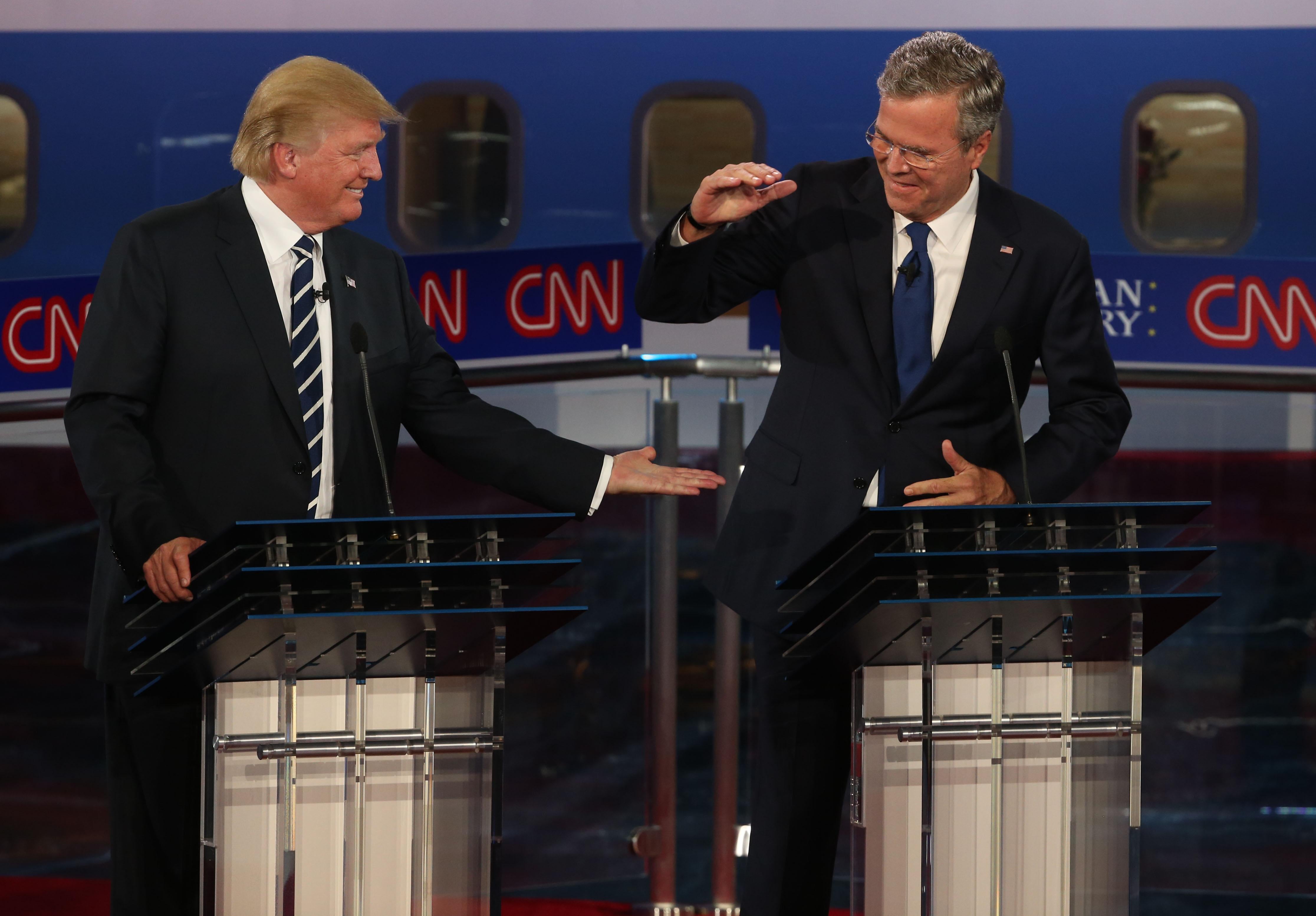Leading up to this morning, word had it that Republican front-runner Donald Trump was going to unveil a proposal to raise taxes on richer Americans while eliminating them altogether for a large number of middle-class families. This, of course, would have been rather unorthodox for a GOP presidential candidate given the party’s dogmatic obsession with cutting rates for the well-off. But Trump played up the idea during an interview on 60 Minutes that aired Sunday, in which he said taxes for “some very wealthy” people would go up under his presidency—a line that was perfectly in keeping with his recent digs at hedge-fund managers. It all made a sort of populist sense, given that, as of 2012 at least, a third of Republicans said they thought the rich paid too little in federal taxes.
Anyway, Trump’s tax blueprint is now out—and it’s not really what he advertised. Mostly, it looks like a steroidal tax cut for just about everybody, especially the wealthy, that’s suspiciously reminiscent of the budget-nuking plan that Trump’s favorite punching bag, Jeb Bush, recently laid out. In fact, it almost seems as if Trump simply glanced at Bush’s plan, then slashed all the rates a little further—or, you know, classed it up a bit. Consider these comparisons:
- Bush’s tax plan would replace the seven tax brackets we have today with just three rates: 28 percent, 25 percent, and 10 percent (today’s top rate is 39.6 percent). He would also almost nearly double the standard deduction that most families take, which he says would mean there would be 15 million more Americans who owed no federal income tax liability.
- Trump’s extra-luxurious tax plan would replace the seven tax brackets we have today with four rates: 25 percent, 20 percent, 10 percent, and (wait for it) zero for married couples earning less than $50,000. As a result, he says, more than 31 million additional households would not owe any federal income tax. This is far better marketing than Bush’s mumblings about the standard deduction. The campaign’s white paper also says the tax code would be simpler, and all non-tax-owing households would get “a new one page form to send the IRS saying, ‘I win.’” Who doesn’t want to win?
- Bush’s tax plan would lower the top corporate rate from 35 percent to 20 percent.
- Trump’s extra-luxurious tax plan would lower the top corporate rate from 35 percent to 15 percent.
- Bush’s tax plan would lower the top rate on capital gains from 23.5 percent to 20 percent. So would Trump’s extra-luxurious tax plan.
- Bush’s tax plan would eliminate the estate tax (which only hits multimillion-dollar estates to begin with). So would Trump’s extra-luxurious tax plan.
- Bush’s tax plan would eliminate the alternative minimum tax. So would Trump’s extra-luxurious tax plan.
- As a sort of half-hearted populist gesture, Bush’s tax plan would eliminate the carried interest loophole, which largely benefits private equity and some hedge fund managers. So would Trump’s extra-luxurious tax plan. (Because both of them lower rates so much across the board, though, neither would probably end up taxing those financiers much more, and could end up giving many of them a cut.)
- Bush’s tax plan would futilely try to pay for itself in part by eliminating various deductions and loopholes. So would Trump’s extra-luxurious tax plan.
And so forth and so on. There are some differences, mostly related to corporate taxation. But the broad strokes have lots of overlap. Asked who informed his tax thinking during his press conference, Trump declined to give specifics, instead saying, “Some of the top people in the country worked on this one.” Presumably, a few of them are on Bush’s list of advisers.
Which, in the end, is kind of brilliant. It’s not that Bush’s tax plan is some carefully rendered piece of policy artistry that Trump was wise to imitate—it looks like the fevered sort of thing a supply-side fanatic would dream up on an ayahuasca trip. More than half the benefits of the personal income tax cuts would go to the top 1 percent, and depending on your assumptions about growth, it could well add trillions to the deficit. But Trump doesn’t care about policy cred. He just needs to signal that he’s willing to do the Republican tax cut dance—but, you know, with more energy than Bush. And look: Grover Norquist is already kvelling about it.
Trump, you may recall, has built a very lucrative, low-risk real estate business slapping his name on other people’s buildings. Now, rather amusingly, he seems to be applying the same approach to the world of campaign policy production. Don’t be surprised if he starts promising 5 percent growth soon.
